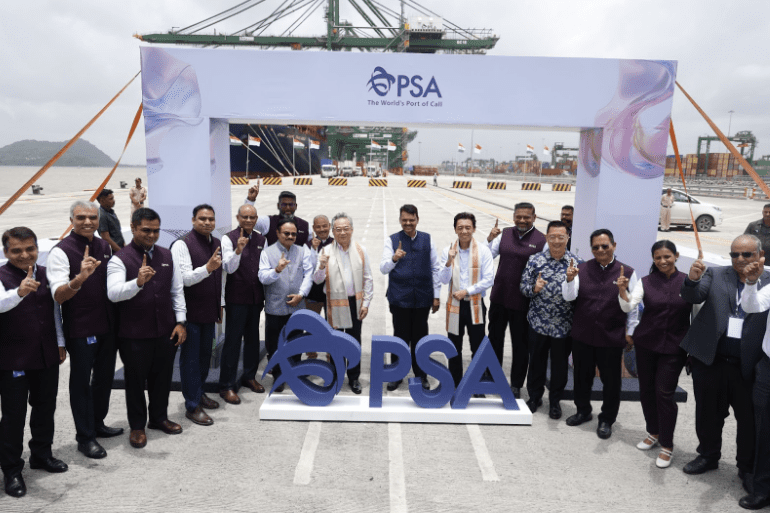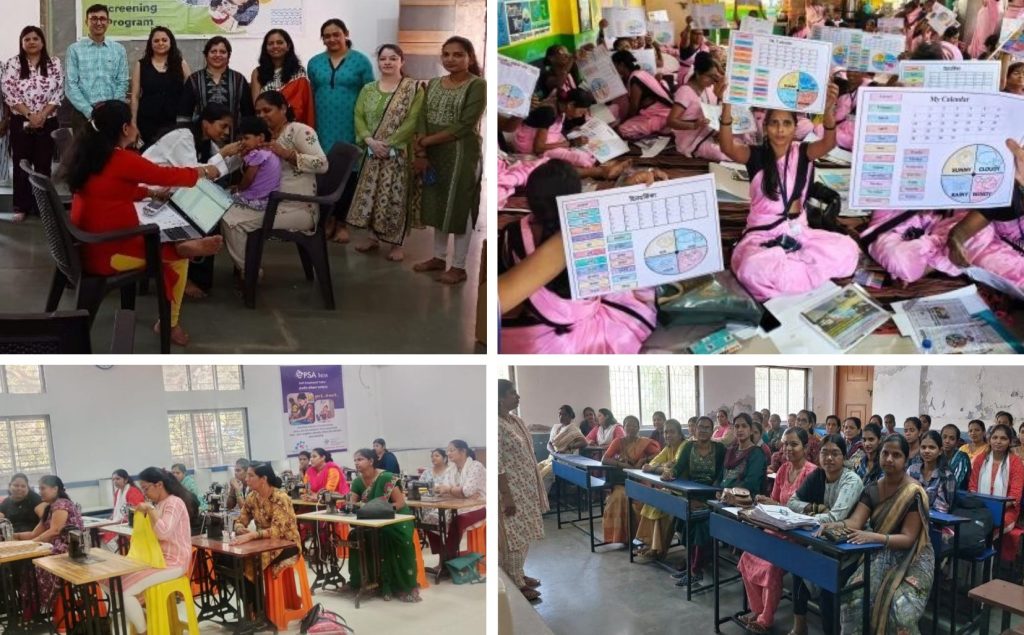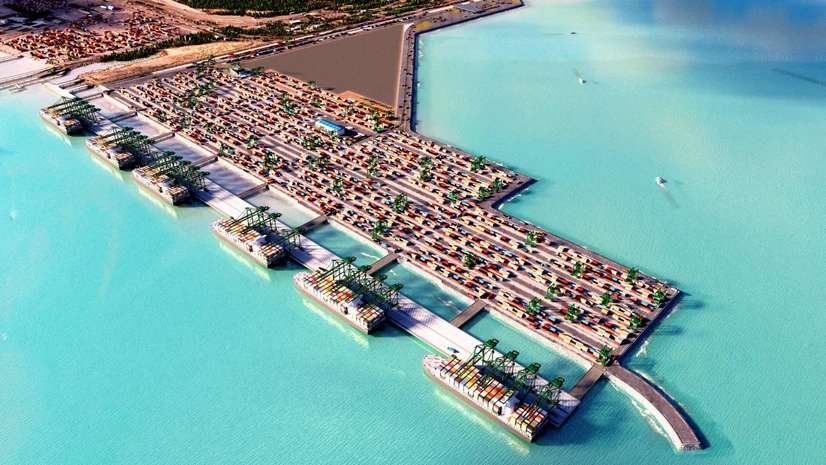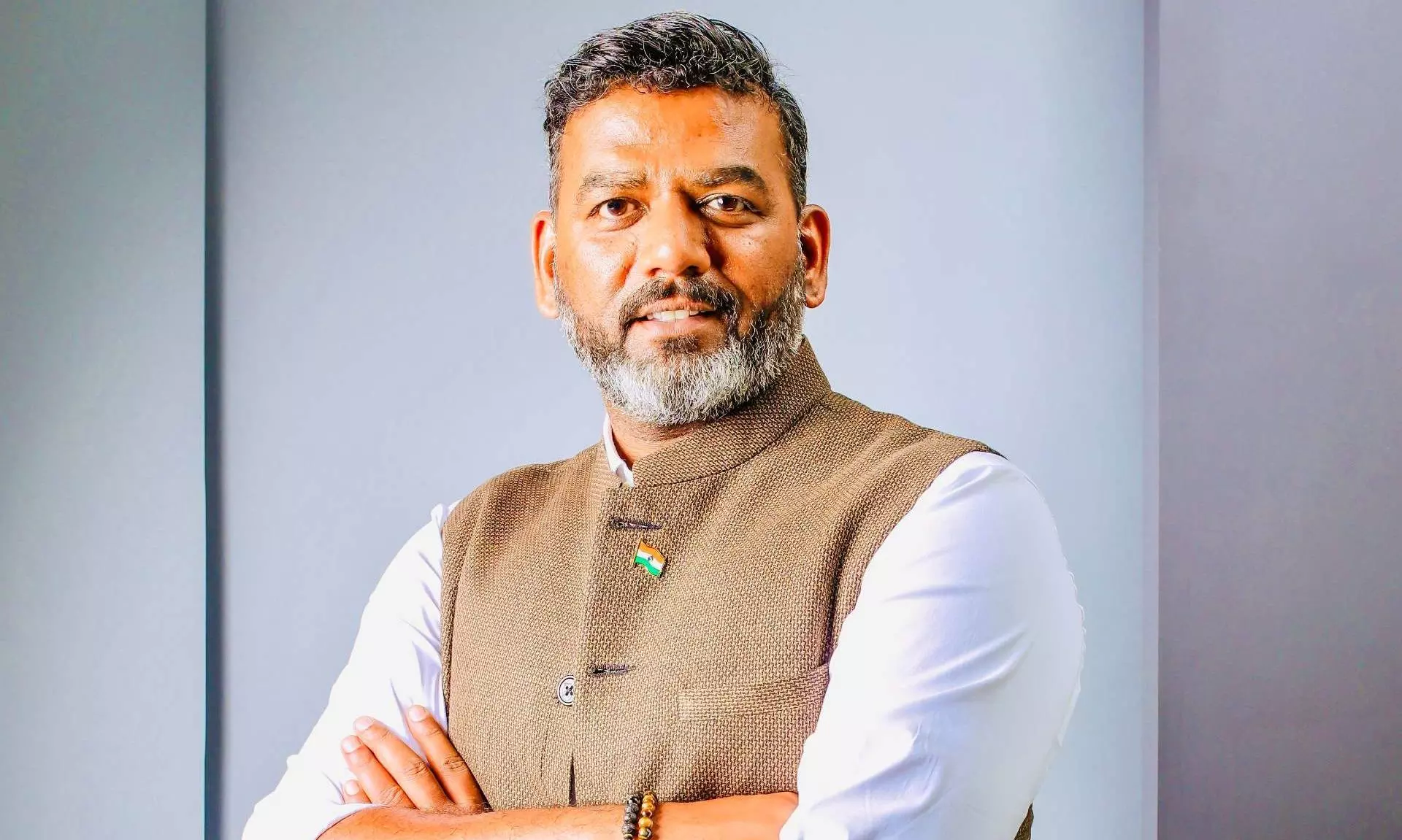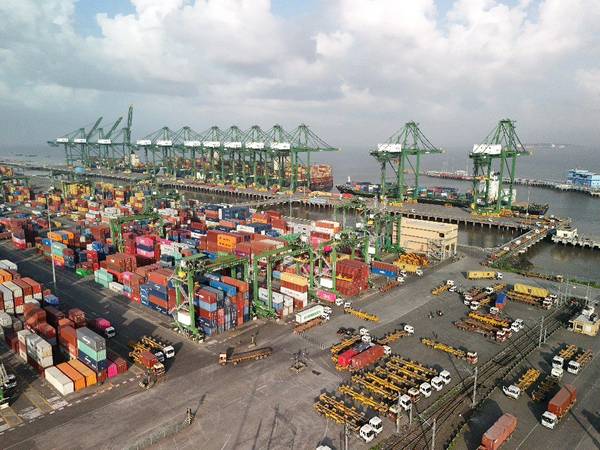Mr Gan Kim Yong, Singapore’s Deputy Prime Minister and Minister for Trade and Industry; Shri Devendra Fadnavis, Chief Minister of Maharashtra; Mr. Jeffrey Siow, Acting Minister for Transport and Senior Minister of State for Finance Singapore visited PSA India’s expanded Mumbai container terminal on August 12, 2025. The purpose of the visit was to examine operational capabilities as the facility prepares for full commercial deployment.
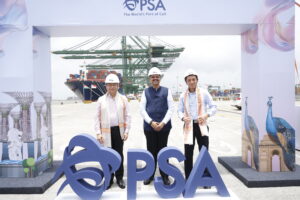
Capacity and Infrastructure
PSA’s $1.3 billion expansion has increased terminal capacity from 2.4 million TEUs to 4.8 million TEUs, making it the largest container handling facility in India. The project adds one kilometre of berth length, creating a continuous two-kilometre quay capable of accommodating multiple ultra-large container vessels. The installation of 12 additional quay cranes brings the total to 24, supporting high-volume vessel operations. A 200-hectare land reclamation provides expanded yard space and multimodal infrastructure, strengthening the terminal’s role in India’s western trade corridor.
Connectivity Framework
The terminal is equipped with six DFC-compatible rail tracks that connect directly to the Western Dedicated Freight Corridor. This integration enables high-capacity and long-distance rail movement, reducing transit times and costs. Connectivity extends to more than 63 Inland Container Depots, the highest coverage by any terminal in India. This network provides manufacturers and exporters with efficient access to international shipping and major domestic markets.
Operational Standards
The terminal meets all its electricity needs through renewable sources like solar and wind, while some non-electric equipment continues to use conventional energy. This makes it a leading example of how large-scale port operations can significantly lower their carbon footprint. This approach addresses environmental compliance while demonstrating sustainable port operations at a commercial scale.
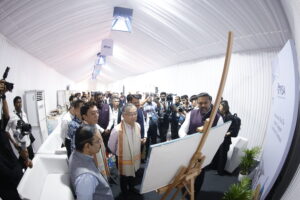
Employment Impact
The project has created over 1,500 positions spanning technical, supervisory, and administrative functions. Job categories include crane operators, logistics coordinators, systems analysts, and maintenance technicians, representing higher-skill employment in India’s port sector.
Training programs developed with PSA’s Singapore operations expose Indian staff to international container terminal management practices. These initiatives extend through partnerships with local educational institutions, building expertise that supports operational sustainability.
Market Outlook
The formal inauguration scheduled for later in 2025 will mark the completion of India’s largest container port investment and establish new operational benchmarks for the sector. The facility represents both immediate capacity relief for India’s constrained port system and a foundation for accommodating future trade growth.
PSA’s Mumbai terminal demonstrates how strategic international partnerships can deliver infrastructure that meets both immediate capacity needs and long-term competitive requirements. The project’s emphasis on sustainability, technological advancement, and operational excellence provides a template for future port development initiatives across India’s expanding maritime sector.





